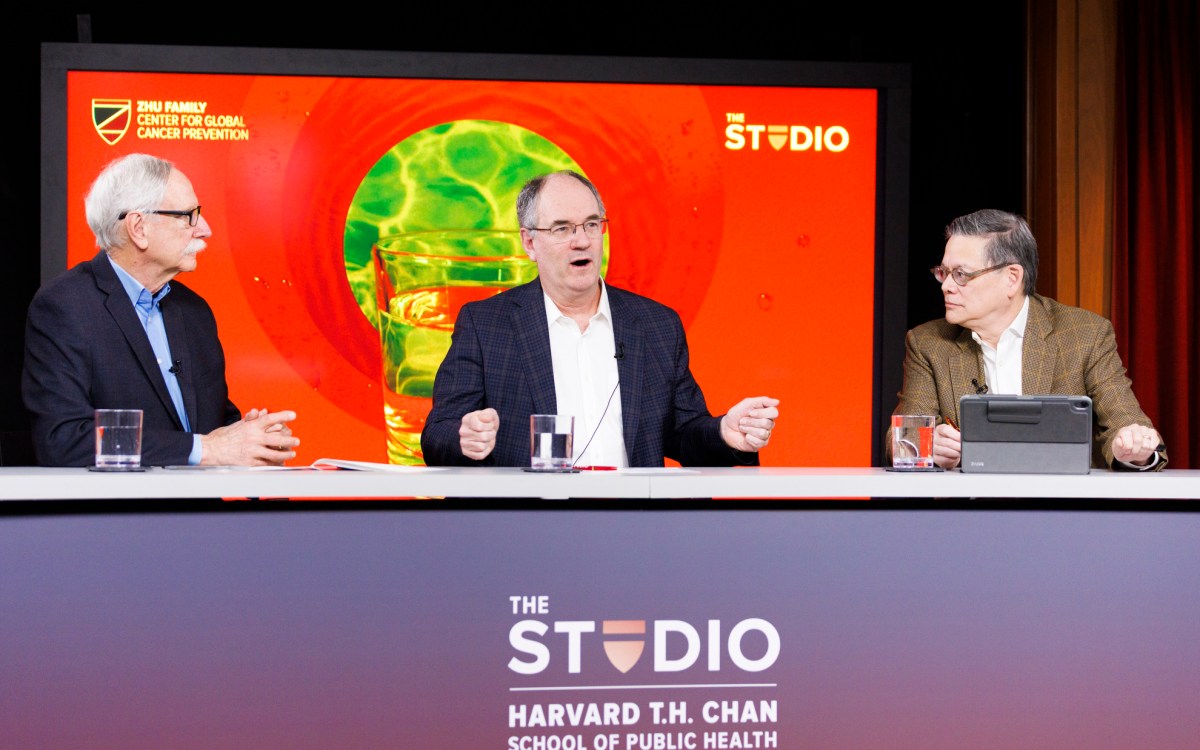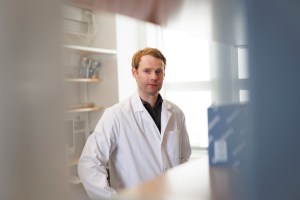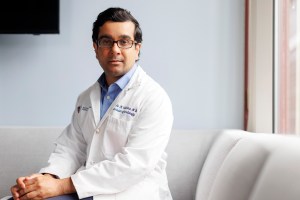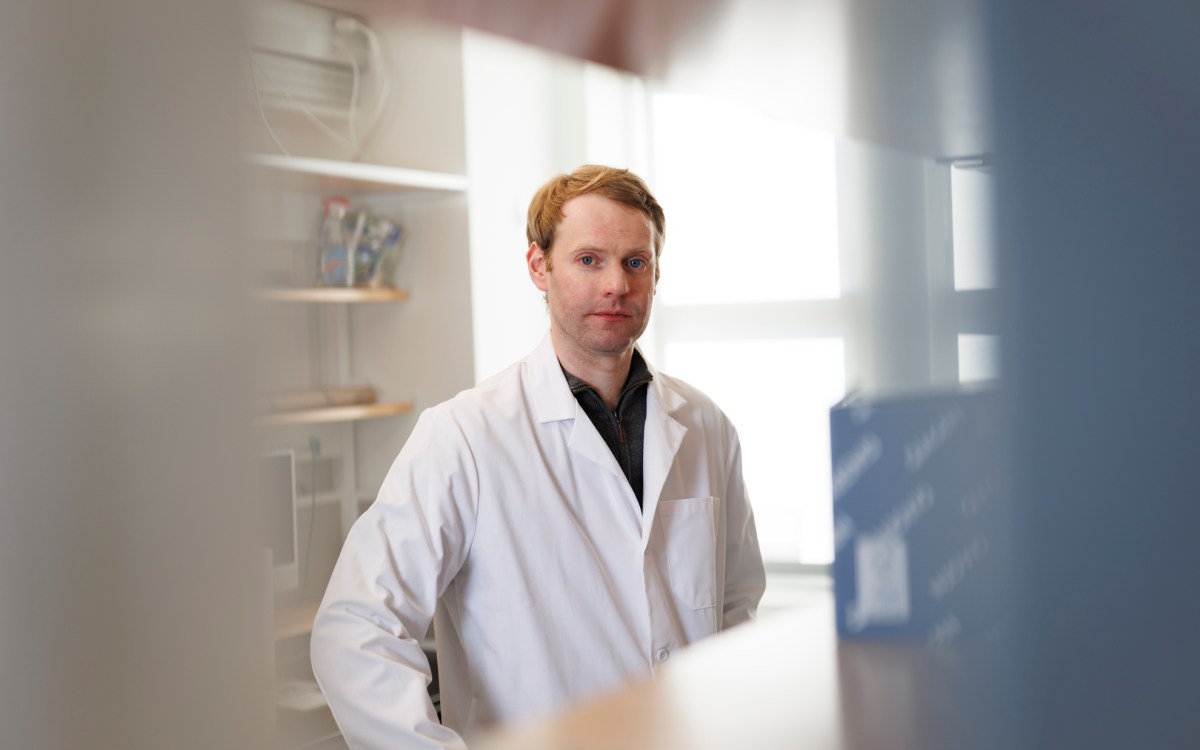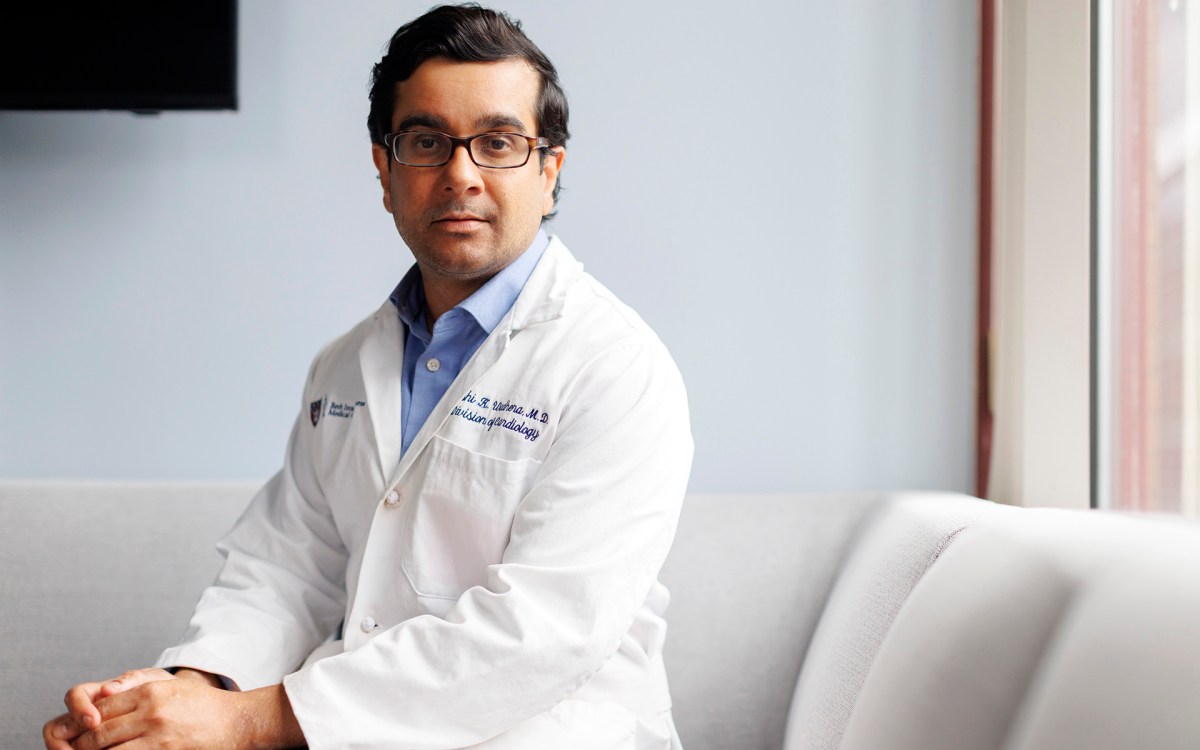In the grip of ‘horror and anger,’ Gawande grows more determined
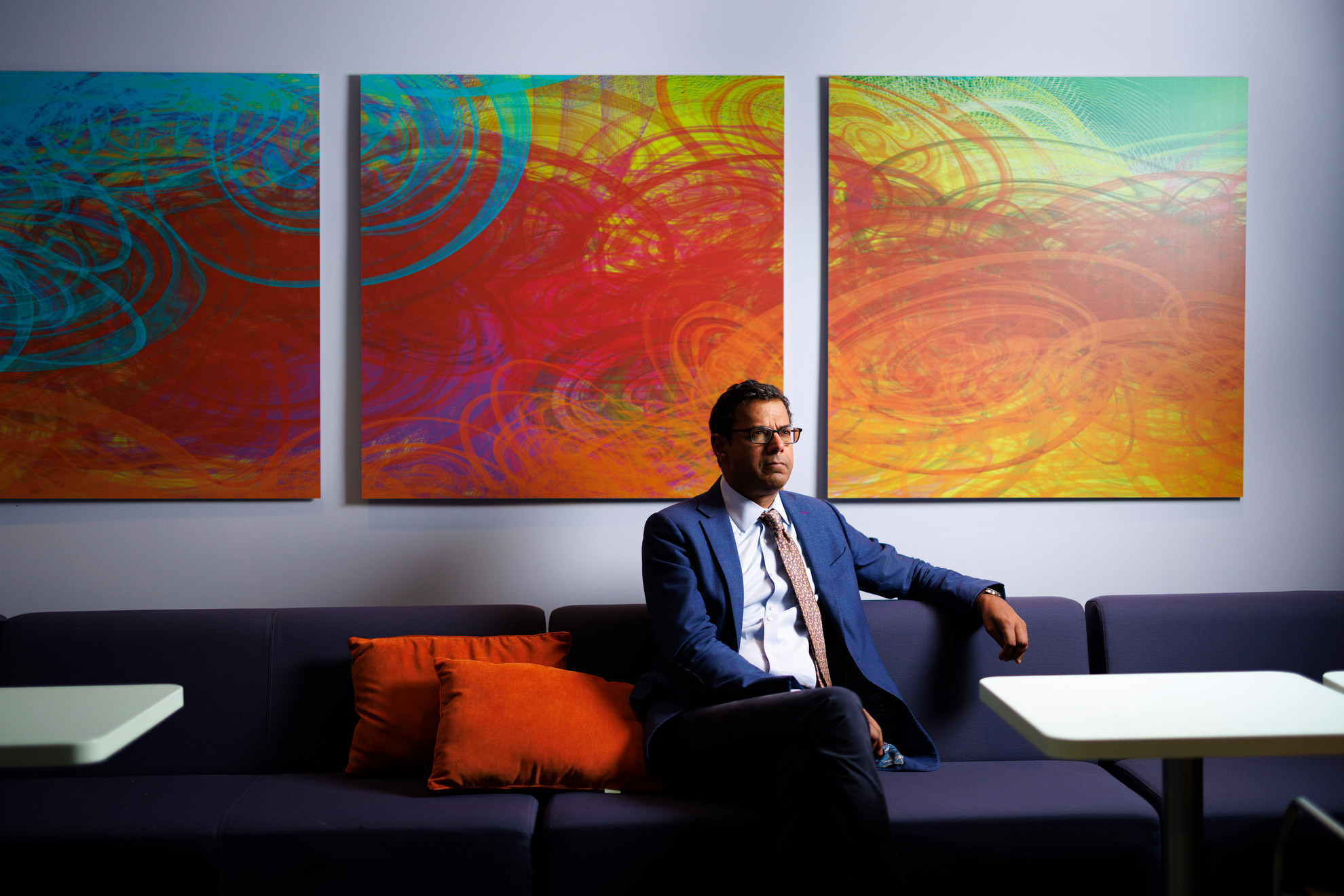
Veasey Conway/Harvard Staff Photographer
As global health suffers, his commitment to patient-first systems takes on new urgency
“I see the admissions are up,” says Atul Gawande.
He’s looking at a chart on the wall at Clinic 7, a medical center that primarily serves South Sudanese refugees in Kenya. In the clinic around him, mothers do their best to soothe malnourished babies.
“The World Food Program cuts started in February, so it’s two months of a lack of food, and now we’re starting to see the surge.”
The moment is captured in “Rovina’s Choice,” a 22-minute New Yorker documentary from the New Yorker that follows Gawande, professor of the practice of surgery at Brigham and Women’s Hospital and Harvard Medical School, as he investigates the fallout of the Trump administration’s cuts to USAID.
In public health, “You don’t let problems simply be statistical,” Gawande said in an interview with the Gazette. “You identify where the problems are, you shine a light on them, and you find approaches that remedy the situation in a systemic way that turns things around.”
For more than two decades, Gawande, who is also an acclaimed writer, has been applying that framework to surgical patients, to end-of-life care, and to global health through his work at USAID during the Biden administration and with Ariadne Labs, a center for health systems innovation that he launched in 2012. His foundational belief: Humans are the only species to have figured out how to double their own lifespan, but work remains to deliver those advances to everyone.
Gawande’s focus on systemic improvements began at the Harvard T.H. Chan School of Public Health and in his surgical training at the Brigham. A series of studies, some of which he conducted, had shown that two-thirds of adverse outcomes in hospital settings — causing disability or death — were due to a lack of execution, not a lack of knowledge.
Gawande wasn’t satisfied with publishing the findings in a medical journal: He wanted to save lives. He led the development of the World Health Organization’s two-minute safe surgery checklist, launched in 2008, which was shown to cut the rate of surgical death by more than 40 percent.
The checklist includes basic questions — What is the anticipated blood loss? Are there any patient-specific concerns? Are there any equipment issues? — that may go uncommunicated or be forgotten under pressure.
“Most of the difficulty is good clinicians, good people in healthcare who are achieving poor outcomes, often due to errors or incoordination,” he said. “Punishment and more training were not going to solve the problem. Instead, you need systems.”
The work led to Ariadne Labs, a joint center between BWH and the Chan School. The lab develops simple tools that improve the delivery of care for patients around the world. Its safe childbirth checklist was found to have reduced intrapartum stillbirth by 11 percent in a meta-analysis of studies involving 300,000 births worldwide.
Even as his research, public health leadership, and writing took up more of his bandwidth, Gawande remained committed to practicing surgery. It required careful balance of his time, but it kept him up to date on what doctors really faced in the operating room. (It also kept him up to date on music. He often curated playlists to buoy his team through 12- to 14-hour surgeries, and the playlists had to have a little something for everyone.) It also served as an escape.
“There’s no email,” he said. “You don’t get interrupted. You can focus on one thing. Nobody’s allowed to have a bad day; you have to leave it at the door, and if you can’t leave it at the door, then you have to go out the door. We’re all there, focused on one thing together.”
Gawande had to pause his practice in 2022 when he accepted President Joe Biden’s nomination to the role of assistant administrator for global health at USAID, which Gawande described as “the best job in medicine you’ve never heard of.”
“We work to make the human consequences more visible as a first step to address and rectify what’s happened.”
Although he worried that by leaving the operating room he’d lose access to the most exciting innovations in medicine, he found that he gained access to new worlds of medical experience. He managed a team of 2,500 supporting healthcare systems in 65 countries on a budget of about $8 billion a year — as he saw it, delivering arguably the greatest impact of any U.S. agency.
“It amounted to $24 per American taxpayer, out of the $15,000 per taxpayer that goes to the U.S. government. It was a tiny fraction, and they reached hundreds of millions of people.”
According to an analysis in The Lancet, USAID’s work saved about 92 million lives over two decades.
Gawande stepped down from his post at USAID at 11:59 p.m. on Jan. 19, the day before President Trump’s inauguration. The same week, Trump signed an executive order halting U.S. foreign assistance. USAID was ultimately dismantled.
“The current estimate is about 600,000 lives lost so far” as a result of those cuts, Gawande said.
Gawande returned to Harvard just as the federal government began imposing deep cuts to research funding, hindering efforts by Ariadne Labs to make surgery safer and improve primary care around the world.
“My feelings are a mix of feelings of horror and anger,” he said. “But also determination. We work to make the human consequences more visible as a first step to address and rectify what’s happened.”
It was that determination that took Gawande to Clinic 7 at the Kakuma Refugee Camp in Kenya earlier this year. Kakuma was one of many settings where USAID had scaled up public health approaches shown to cut the death rate of severe acute malnutrition in children from 20 percent to less than 1 percent. But funding cuts had sacrificed community health workers, nutrition staff, supplies, and food aid, leaving refugees with just one meal a day. A system that had succeeded had now collapsed.
Gawande followed Rovina Naboi, who had fled war-torn South Sudan and was raising her children in Kakuma. Rovina took her young daughter, Jane Sunday, to the faraway Clinic 7 for life-threatening complications of malnutrition. But resource shortages due to aid cuts forced her to make a terrible decision.
“We’re seeing a massive level of loss,” Gawande said. “It’s horrifying. But I think we can get back on the path of holding accountability, making the loss visible, and beginning to move forward in a way that could help rectify what’s happened.”
Back at Harvard, Gawande could eventually return to the operating room, and the idea appeals to him: He’s eager to see firsthand how artificial intelligence is working in hospital settings. But right now he’s focused on answering a more urgent call.
“At the current moment, the biggest threat to advancing human life expectancy is the government itself,” he said. “So that’s where I’m concentrating.”
